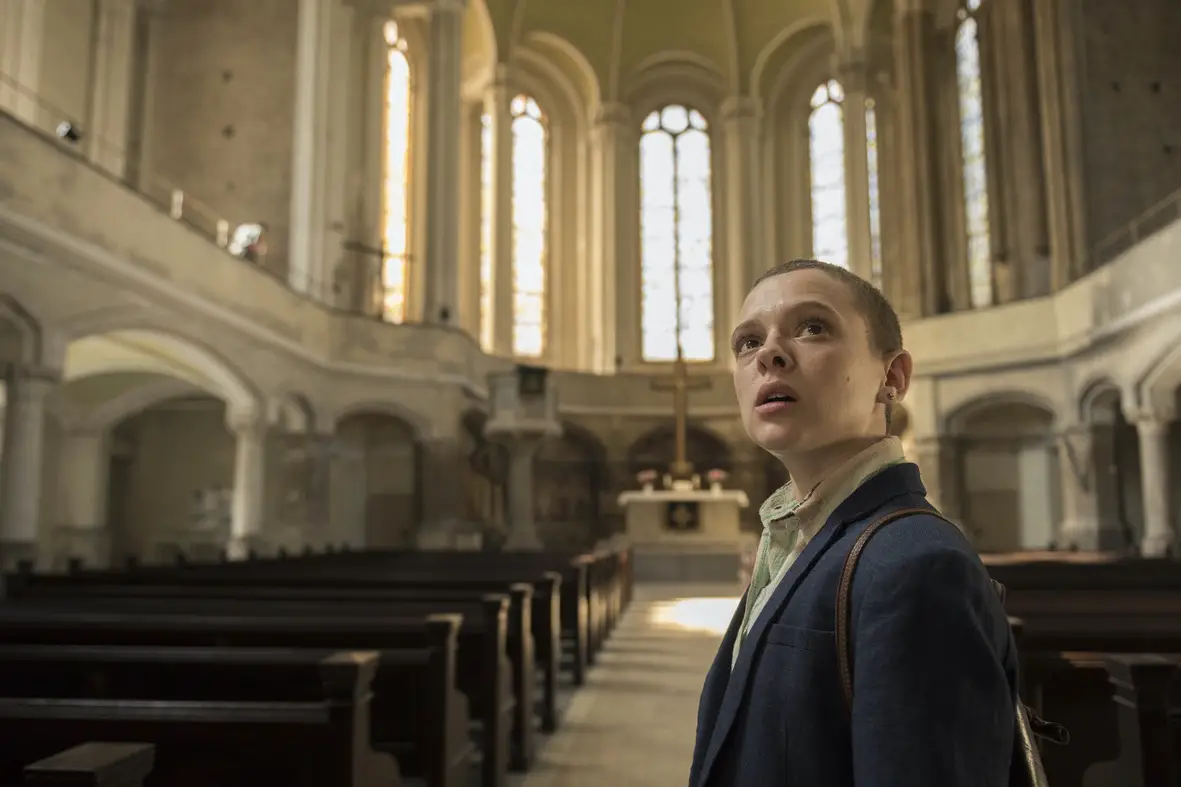At the end of March, Netflix released a few interesting limited series, one of which was a German American drama called “Unorthodox.” The show tells the story of Esther Shapiro, or Esty (Shira Haas), who broke away from her Orthodox Jewish roots. The 19-year-old Shapiro spent her entire life in the Hasidic community in Williamsburg, Brooklyn, before she fled to Berlin, Germany in a quest to find herself.
“Unorthodox” is loosely based on Deborah Feldman’s memoir, titled, “Unorthodox: The Scandalous Rejection of My Hasidic Roots,” which was published in 2012.
https://www.instagram.com/p/B-FHJ29n198/?utm_source=ig_web_copy_link
The drama depicts the hardships that Shapiro faced while navigating the world outside of her community. Shapiro was only educated about her religion and its rules. It was all she had under her sheitel.
Her religion shaped her and betrayed her at the same time. She was clueless about anything outside of her Hasidic roots, including her own anatomy.
Maria Schrader, a German actress and director, directed the show as a pseudo-documentary mini-series about the ultra-conservative Satmar Hasidic Jewish culture, and Shapiro’s journey attempting to separate herself from it. Every frame was effectively used to express her intense multifaceted emotions as she left everything and everyone behind.
In the beginning of the first episode, viewers were greeted with the nervous Shapiro packing some small precious items into her purse on a Sabbath afternoon. Haas did such an amazing job demonstrating a distressed woman needing to escape that we have no choice but to root for her, even though we’re not sure what she was running away from.
We can sense the urgency of her little feet rushing through the blocks, avoiding everyone with a shtreimel or a tichel on their heads. Despite her needs to quickly get away and not be seen, she did not forget to greet the people she knew. “Good Sabbath,” said Shapiro.
The show is mainly in Yiddish, and as we continue to watch, Shapiro’s life slowly unravels. The audience is consistently brought back and forth into her narrative. At first, we see her arriving in Berlin, stepping awkwardly out of the Berlin-Tegel airport. Then, two minutes later, we go back to her grandmother’s dining room in Williamsburg, greeted with the news that the matchmaker found a candidate to marry her.
“Unorthodox” tries to make watchers understand the struggles that women face in a strict religious group like the Satmar Hasidic community, while still respecting the religion itself. The series exhibits the dilemma that a lot of religious women, such as Shapiro, have when they are given the opportunity to choose between losing their entire self to religion and gaining a sense of personhood that goes against their beliefs. It is certainly not an easy decision to make.
Religion can be a foundation of someone’s life or a force to look up to when they feel lost. In “Unorthodox” we see that this was Shapiro’s initial belief. She wasn’t sure of who she was. She felt as if she was different from other girls in the community, but she didn’t understand what made her different.
https://www.instagram.com/p/B9ZSiD_K1Pe/?utm_source=ig_web_copy_link
Shapiro thought that being a devoted woman was the path that would lead her into finding her true self. Nonetheless, she would soon realize the role that conservative Judaism had confined her to was not the self she was looking for.
Shapiro endured a year of marriage before she left Brooklyn. Her marriage to Yanky Shapiro, played by Amit Rahav, was depicted as frustratingly painful for her. She never particularly hated her husband and even sympathized with him from time to time. Yet, the pressures that the young couple received from their surroundings tore them apart.
The clueless 19-year-old got married when she didn’t even know where her vagina was located, or the fact that she has one. Terribly unprepared, Shapiro was sent off to live with Yanky Shapiro, who was equally ill-informed.
Esther Shapiro was expected to be a “baby machine,” a term which Esther Shapiro disapproved of in the show. She was expected to be one thing: a mother. Everyone wanted, even demanded, that she get pregnant as soon as possible, despite the extreme pain that she had to go through every time she had intercourse.
In strict religious groups, including Hasidic Judaism, we often find women being treated as secondary human beings, as they have fewer privileges than men. “Unorthodox” unveils this treatment gradually, almost elegantly.
For instance, Yanky Shapiro wasn’t always a terrible husband. The naive young man was gentle, he respected Esther Shapiro’s opinion and even felt guilty when she was hurt in their sexual interactions. However, much like his wife, Yanky Shapiro was just another boy, heavily influenced by his community because that was all he ever knew.
Yanky Shapiro’s only source of information about women were his mother and sisters. When his mother told him that women aren’t “normally” in extreme pain during sex, or that Esther Shapiro should’ve gotten pregnant within a year of their marriage, Yanky Shapiro believed her because he didn’t have any other source.
This is what differentiates “Unorthodox” from other shows. It does not strip away the ugliness of an isolated religious community, but it also shows that the ugliness was not “created” because they were bad people. The four-episode series never antagonized any character in the story.
https://www.youtube.com/watch?v=-zVhRId0BTw
The Hasidic Jews in Brooklyn are notorious for their dedication to the ancient laws and living insulated lives in their enclave. So Yanky Shapiro being so uninformed is not uncommon. As Esther Shapiro put it, “Williamsburg is not America.”
Just recently, the community was criticized for holding massive funerals despite the COVID-19 prevention regulations that banned gathering of more than 50 people. In retrospect, they were not bad people because they ignored the “conventional” rules. They were merely grieving in the only way they knew how.
The people in this excessively orthodox society were simply living their lives in the only way they were ever educated. Surely, Esther Shapiro’s grandmother (Dina Doron) and aunt (Ronit Asheri) wanted her to be happy. It’s not their fault if the only concept of happiness they understood was to be a good wife and mother.
Esther Shapiro left her community because she was disappointed with the treatment she got. Still, she did not despise being Jewish and remained respectful to her roots. She always believed that God was with her, only that she was unable to keep up with all of God’s expectations.
She didn’t go to Berlin because she was imprisoned in Brooklyn. Williamsburg was not her prison. Esther Shapiro went to Germany because she wanted to find the self that was not colored by her belief. She was looking for opportunities to paint her own portrait without being overshadowed by Orthodox Judaism.
“Unorthodox” is, indeed, an unorthodox film in the way that it delivers the journey to finding oneself while also being a documentary about religion. Regardless of whether you believe in the existence of God or in the institution of religion, the show will remain relatable.
“Unorthodox” is not the traditional search for freedom. We can be completely free yet oblivious about our true selves. It’s an exceptional tribute to anyone who has lost themselves in a pool of everything they believe in and everyone they love, and a pursuit to draw a picture of themselves notwithstanding those factors.
Thus, we’re the Esther Shapiro’s of our own unorthodox lives. We are always looking for opportunities to paint our own portrait without being overshadowed by the clouds of our environment. Similar to Esther Shapiro, we want to feel our own skin, uncovered from the clothes of our society.

















